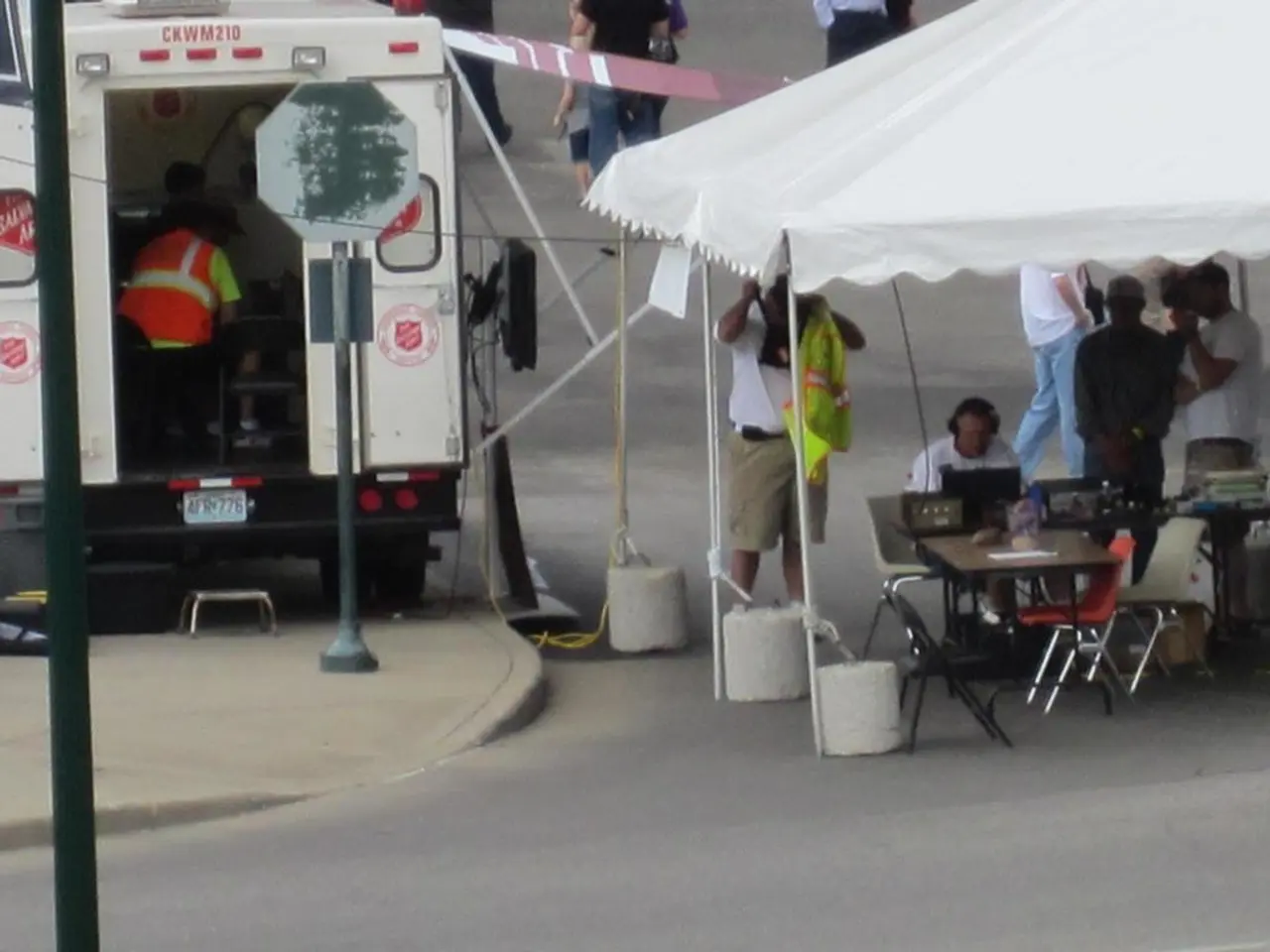Assistance in Times of Calamity: Guidance on Seeking Aid and Providing Assistance following a Natural Catastrophe
In times of natural disasters such as floods, bushfires, and storms, it's essential to know where to turn for assistance. This guide aims to provide helpful information for those affected by such calamities.
If you find yourself in need of emergency assistance during a natural disaster, your first point of contact should be your state emergency services. In Victoria, you can reach the State Emergency Service at 132 500, while in New South Wales, the Emergency Service can be contacted at 132 500.
The Australian Government Disaster Recovery Payment is a lump-sum payment available to those directly affected by a natural disaster, such as the recent Victorian floods in October 2022. For more information, visit the government's official website.
For those affected by the disaster, another source of help is the Disaster Recovery Allowance, a short-term payment designed to assist individuals whose income has been affected by the disaster.
In addition to government support, several organisations are dedicated to helping communities recover from natural disasters and strengthen their disaster resilience. The Red Cross, for instance, manages disaster recovery programs in affected areas and works alongside communities to help them prepare for future disasters. They launch appeals for specific disasters or accept one-off donations or regular donations to support their work more broadly.
GIVIT is another not-for-profit platform that matches the needs of Australia's most vulnerable people with donors from across the country. They advise against sending unrequested donations to impacted areas and instead encourage giving through their platform, where you can see and give exactly what's needed, including essential items and services.
Foodbank plays a crucial role in times of emergency and natural disasters, providing immediate support such as bottled water, batteries, toilet paper, and food that doesn't require refrigeration and cooking when there is no power in the area.
Local Lions Club volunteers also offer practical support, such as food and clean water, to their community during a disaster.
Local councils provide extensive support during natural disasters, including emergency response and recovery. Visit knowyourcouncil.vic.gov.au for contact details and information about each Victorian council.
For rapid response and 24-hour assistance from accredited plumbers, electricians, and locksmiths for common home repair emergencies, call RACV Emergency Home Assist on 1300 638 108.
Beyond Blue has a guide on how to look after your mental health following a disaster. Call Beyond Blue on 1300 22 4636 for support. Lifeline also provides confidential crisis support 24 hours a day for those experiencing emotional distress after a natural disaster. Call 13 11 14 or text 0477 13 11 14.
Lastly, the Australian Government's National Recovery and Resilience Agency provides financial assistance to communities affected by major disasters such as floods, bushfires, or storms. The Emergency relief assistance payment is available to assist individuals and communities experiencing hardship after a natural disaster.
Remember, during these challenging times, it's crucial to support each other and seek help when needed. Stay safe and look out for one another.








